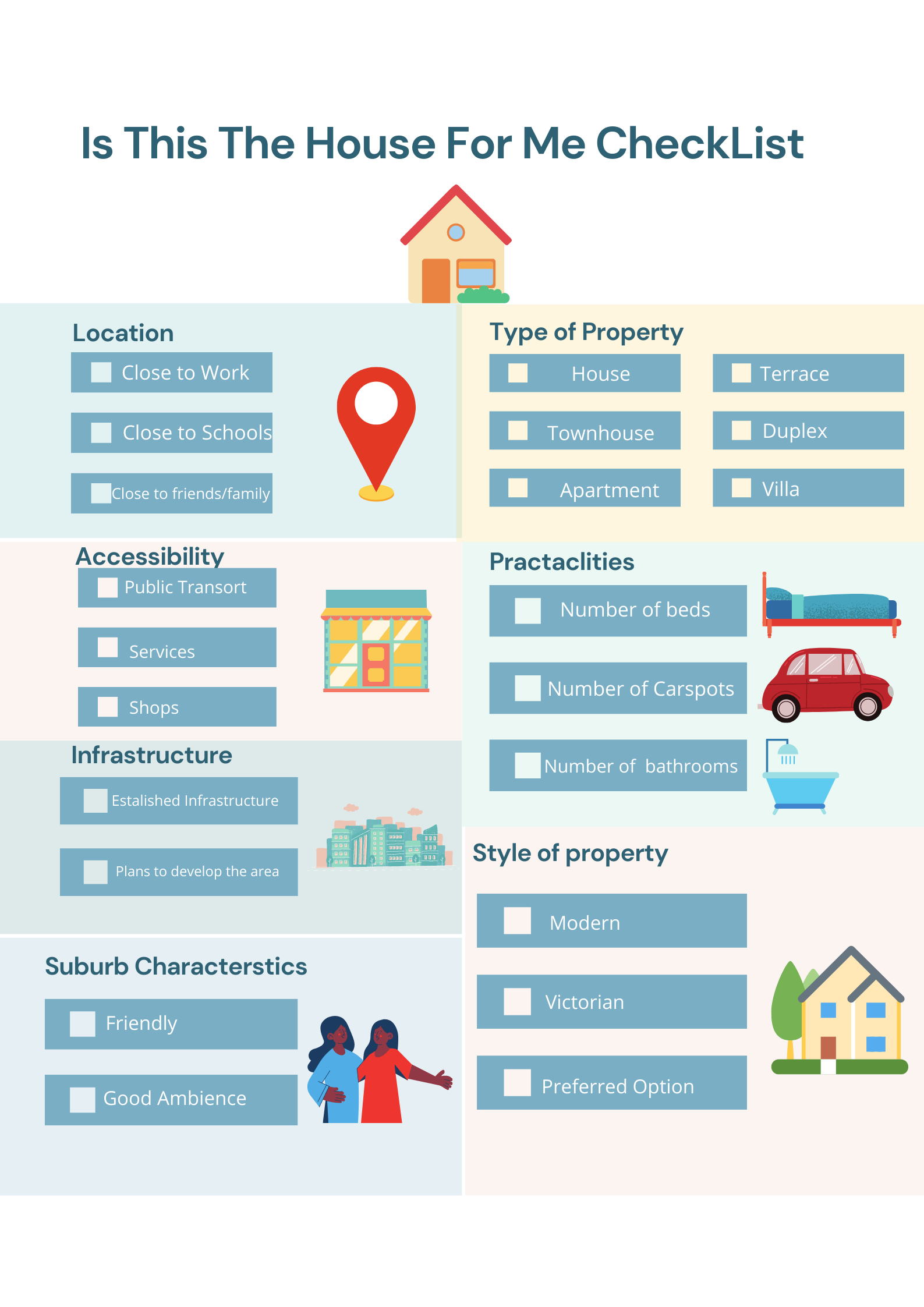8 Simple Steps To Finding Your Dream Home
The decision to buy property is perhaps the most daunting decision of your life with many factors to consider. Whether you are a first home buyer or looking to make a wise investment for your property portfolio. It is important to constantly be doing your research and not to settle with the first property you set your eyes on.
That is why we have devised the perfect guide to help you find the most suitable home that suits your tastes.
Contents List
3. Get a home loan a pre-approval
4. Remember to inspect your property
1. What is my budget?
One of the biggest questions you will probably ask yourself is, how much money do I have to spend to buy a house. A mortgage is a massive financial responsibility that needs to factor in different expenses on top before making such a grand decision.
It is recommended, that you apply for a copy of your credit report to ensure that you clear away any debts. If you happen to own multiple credit cards and have unpaid loans, this will minimise your chances of securing a loan that is most suitable for your dream home. Additionally, you should discuss with your accountant the amount you will need for your mortgage repayments
2. How much can I borrow?
With so many lenders available it can be so confusing to work out which bank will offer you the best loan options. Hence you should seek guidance from a mortgage broker, to determine which lender is best suited to your financial situation. They will be able to offer you advice on which interest rate is best for you, whether it’s a fixed or variable rate.
3. Get a home loan pre-approval
One of the key recommendations we make for any home buyer is to apply for pre-approval, as it speeds up the purchasing process for when you locate your chosen property you want to buy. It also provides you with the confidence to know you can make a conditional offer on a property, with the knowledge of how much you spend.
To obtain a pre-approval, you can either go directly to the bank or you can contact a mortgage broker. The key difference between the two is that banks have fewer options to choose from. Whereas a mortgage broker has a panel of lenders to choose from with a wider variety to suit your requirements and financial situation.
All you need to provide your mortgage broker or lender with is your credit reports, savings, income and investments statements. This will allow them to review the information and grant you a pre-approval on how much you can spend.

During this emotional rollercoaster of buying a home, it is important to have a clear vision of what you’re looking for. Whether you’re an investor, single or looking to purchase a family home, everyone has their priorities listed differently. So, to assist everyone, we made a simple checklist of must-have requirements for your new home.
To view what properties are on offer and available in your chosen area, you can search through online property websites, newspapers and local real estate agents. It is important that you appropriately conduct research into the property prices and find the median price amongst the areas you are interested in. All this information can be found through the existing property market data
4. Remember to inspect your property
Anyone looking to purchase a home should have it inspected for faults. You would never want to purchase a home only to discover later that there was a pest problem or that it was not structurally sound. By getting a qualified building inspector to make an assessment it can save you a lot of time and money. At most this will cost you a couple of hundreds of dollars in comparison to hundreds of thousands of dollars you are going to spend on buying this property. So why not ensure it’s not a dud.
5. Bidding wars
You have chosen your desired home, now is the time to get a property valuation to help determine what is a suitable price to offer for the property. A general rule of thumb is to make an offer no less than 10% of the asking price. When you’ve reached a decision, contact that agent related to the property to let them know that you want to go through with the deposit.
Once this has been done, that’s when an exchange of contracts occurs between buyer and seller
6.Legal legwork
Don’t worry you’re nearly there, only a few more steps to go. You will need the help of a solicitor to ensure that there are no legal surprises within the contract once you made the purchase. Remember signing a contract without a lawyer is like jumping into the ocean without looking first to see if there are any sharks.
7. The cooling period
There will be a time provided known as the cooling-off period to buyers who purchased a property that wasn’t made through an auction. This will allow buyers to cancel the sales if they change their mind, but they will have to pay a penalty if they do.
The time between the exchange and settlement will allow the buyer to arrange their balance for financing and signing the mortgage. It is important during this period to ensure your property.
8. Settlement Day
On this memorable, you will meet with the vendor to swap your checks with their tile of ownership. After everything you’ve been through, this moment will forever remain in your heart. Congratulations you’re now the proud owner of a new home.
Remember to sort out utility accounts, pack your belongings and employ the help of removalist and maybe a cleaner. Don’t forget to also redirect any mail to the new address.
Buying a home is a highly time consuming process, involving a lot of decisions to be made. But when it is handled smartly, the rewards can be enormous.
Best wishes as you settle in to your new place!
Got a home loan question? Just ask!
We’re here to help. Get free expert advice at a time that suits you.
Choose a time to chat with a Home Loan Specialist here
The information in this post is general in nature and should not be considered personal or financial advice. You should always seek professional advice or assistance before making any financial decisions.




